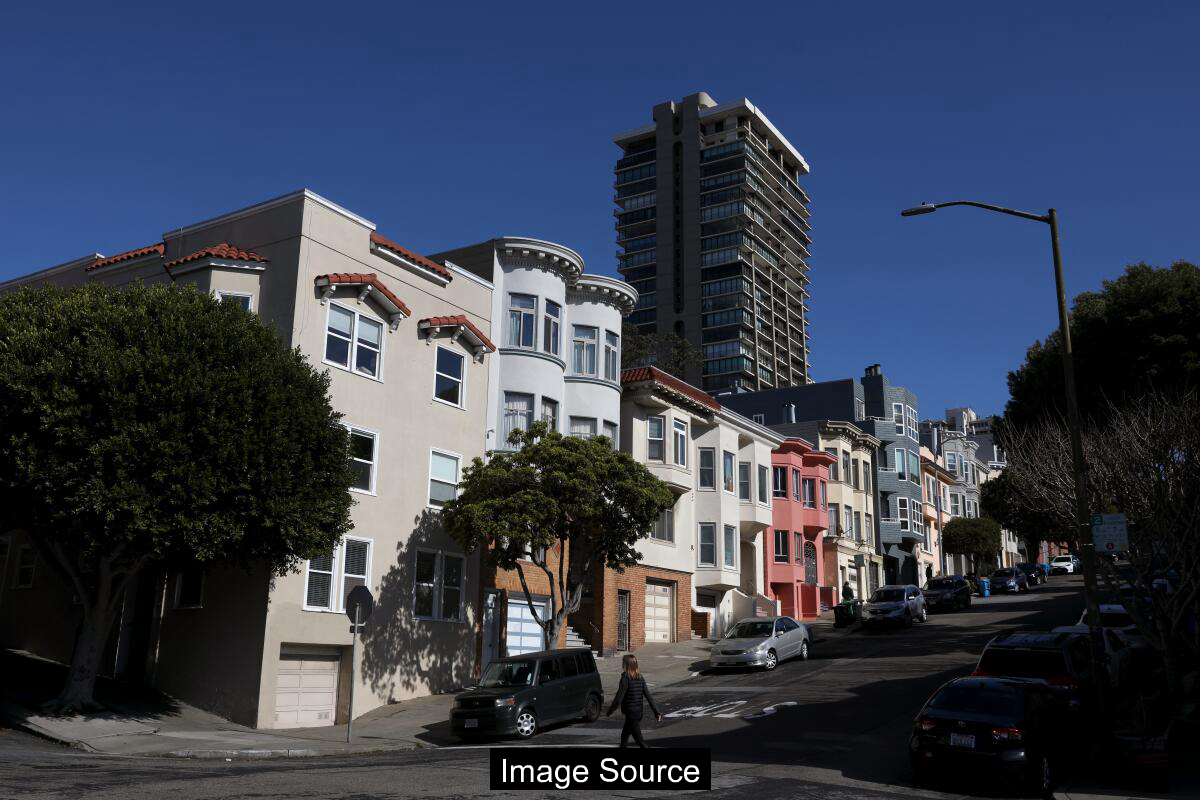Recent data indicates a significant shift in San Francisco’s real estate market, with housing prices gradually stabilizing after years of pandemic-induced volatility. The city’s residential property values have been declining, now approaching price points last seen before the COVID-19 pandemic disrupted urban housing dynamics.

San Francisco Housing Market: A Complex Landscape
San Francisco’s housing market continues to present a nuanced economic narrative. Recent analysis by Redfin suggests the city’s housing costs are returning to pre-pandemic equilibrium, specifically reverting to July 2018 levels when accounting for local income. This development signals a potential stabilization after years of dramatic price fluctuations.
The metric used by Redfin examines the mortgage payment-to-income ratio, a critical indicator of housing affordability. In July 2018, San Francisco households were spending approximately 74% of their income on mortgages, compared to the national average of 30%. The current trend suggests a gradual normalization of this challenging financial landscape.
Tech-driven metropolitan areas like San Francisco, Austin, Seattle, and Denver are experiencing unique economic dynamics. Wages in these regions are growing considerably faster than the national rate of 3.9%, which contributes to the complex housing market recalibration.
Understanding the Housing Cost Dynamics
While the Redfin report indicates a return to 2018 housing cost levels, it does not necessarily mean San Francisco has become affordable. The city remains one of the most expensive housing markets in the United States, with significant financial barriers for many residents.
Redfin senior economist Asad Khan emphasizes that home price growth has cooled considerably from pandemic peaks. This cooling trend is particularly noticeable in tech-centric metropolitan areas where salary growth outpaces national averages.
The analysis provides a nuanced perspective on housing affordability, highlighting that different cities experience housing market dynamics uniquely. For instance, while San Francisco shows signs of stabilization, other cities might follow different trajectories in the coming years.
Rental Market Challenges
The rental market in San Francisco presents a starkly different picture from the homeownership landscape. The ongoing artificial intelligence boom has dramatically impacted rental prices, with companies like OpenAI offering extraordinarily high salaries that contribute to market distortions.
In August, median rent for a one-bedroom apartment reached $3,069, representing an almost 11% year-over-year increase. This surge is faster than any other large city in the country, effectively pricing out lower-wage workers and exacerbating housing inequality.
The rental market’s volatility underscores the complex economic ecosystem of San Francisco, where technological innovation and high-paying jobs create significant ripple effects across housing affordability.
Market Insights and Comparisons
Comparing San Francisco’s housing market to other U.S. cities reveals significant disparities. While the Redfin report suggests a potential return to 2018 levels, no other city is projected to achieve this milestone in 2025 or 2026.
Cities like St. Louis provide a stark contrast, with households spending only 18% of their income on mortgages compared to San Francisco’s 74%. These differences highlight the unique economic pressures in tech-heavy metropolitan areas.
The analysis cautions against overly optimistic interpretations, noting that market projections should be viewed with measured expectations. Economic variables can shift rapidly, potentially altering housing market trajectories.
Market FAQs
Q1. Are San Francisco housing costs becoming more affordable?
A1. While returning to 2018 levels, the market remains expensive, with high mortgage-to-income ratios and significant rental costs.
Q2. How are tech salaries impacting the housing market?
A2. High wages in tech sectors are driving complex market dynamics, influencing both home prices and rental markets in significant ways.
Strategic Summary
San Francisco’s housing market demonstrates remarkable complexity, characterized by technological innovation, high wages, and persistent affordability challenges. The Redfin analysis offers a nuanced view of potential stabilization without suggesting immediate relief for most residents.
The interplay between tech industry growth, salary increases, and housing costs continues to reshape the city’s economic landscape. Stakeholders must remain attentive to evolving market conditions and potential policy interventions.
Future housing strategies will likely require comprehensive approaches addressing wage disparities, rental market pressures, and long-term affordability goals.
Source: latimes.com